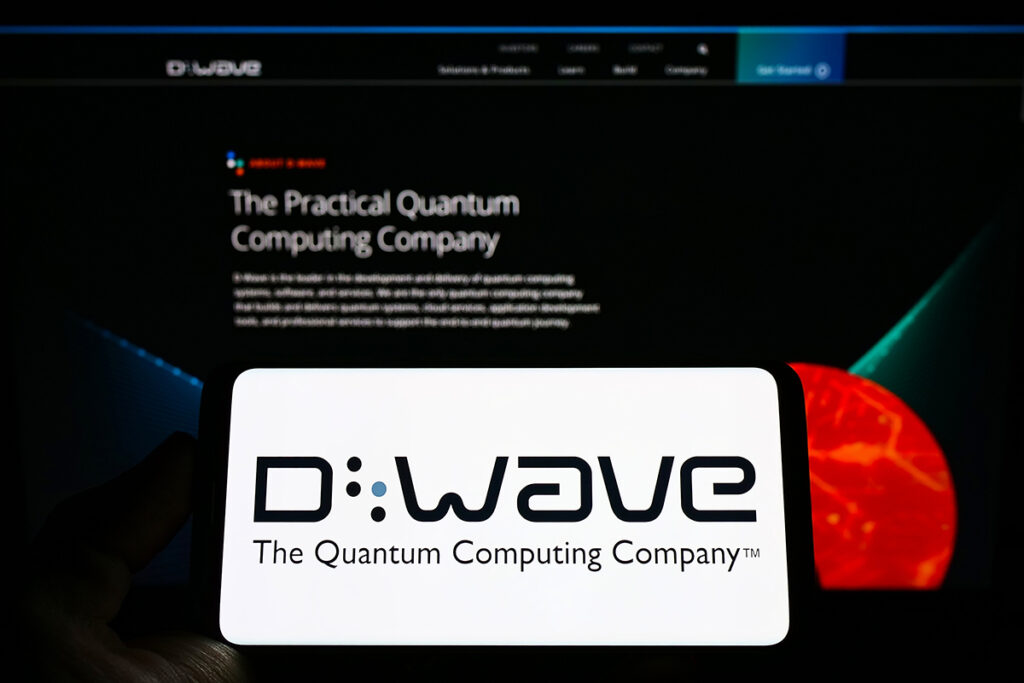The quantum computing industry is experiencing a surge in innovation, driven by groundbreaking advancements from tech giants. In December, Google unveiled its Willow quantum chip, a technological breakthrough that significantly reduces computational errors as more qubits are added. This development marks a major step toward making quantum computing more commercially viable, enabling faster and more efficient problem-solving than classical supercomputers.
Willow’s breakthrough demonstrated its ability to solve a benchmark computation in just five minutes—an operation that would take the world’s most powerful classical supercomputer an estimated 10 septillion years. While this test was designed specifically for quantum computers and has limited real-world applications, it highlights the increasing capabilities of quantum technology. As a result, many quantum computing stocks have experienced rapid gains, with some surpassing Wall Street’s price targets. However, one company still holds significant upside potential—D-Wave Quantum.
D-Wave’s Distinct Approach to Quantum Computing
D-Wave sets itself apart from other quantum computing companies by using a quantum annealing approach rather than the gate-based method favored by companies like Google. Gate-based quantum computing involves programming a set of specific commands to execute complex tasks, making it highly flexible and ideal for applications such as cryptography and machine learning. However, this approach is highly susceptible to noise and environmental disturbances, resulting in frequent computational errors.
In contrast, D-Wave’s quantum annealing process relies on a probabilistic model to solve optimization problems efficiently. Instead of following a rigid program, quantum annealing allows particles to settle into the lowest energy state, finding optimal solutions for complex tasks. This method is particularly effective for industries that require logistical optimization and financial modeling, where finding near-optimal solutions quickly is more valuable than absolute precision. Additionally, quantum annealing is inherently more resistant to errors compared to gate-based systems, giving D-Wave an advantage in practical applications.
Wall Street’s Optimism for D-Wave Quantum
While many quantum computing stocks have already surged beyond their projected targets, analysts see D-Wave as an opportunity for further growth. The company’s stock price is projected to climb as high as $9 per share, representing a potential 45% upside from its current value. Even the median price target of $7.50 per share reflects a 21% increase, signaling strong investor confidence.
Unlike many competitors still in the research phase, D-Wave has already secured dozens of customers across various industries, using its technology to tackle real-world computational challenges. The company expects a 120% year-over-year increase in bookings for 2024, reflecting growing demand for its quantum computing solutions.
A Strong Financial Position for Growth
D-Wave recently strengthened its financial position by raising $175 million through stock sales in December. With a $60 million annual cash burn due to heavy investments in research and development, this funding provides the company with the flexibility to expand both its technology and market reach.
Management is positioned to increase spending on sales, marketing, and further innovation, ensuring sustained growth. Analysts expect 2025 to be a crucial investment year, paving the way for stronger financial performance in 2026. Leveraging its quantum annealing technology already in commercial use, D-Wave has the opportunity to secure a competitive advantage in the fast-evolving industry.
A Long-Term Bet with High Potential
Quantum computing remains a highly competitive and fast-moving sector, with major players such as Google pushing the boundaries of what is possible. However, D-Wave’s unique approach and commercial traction give it a distinct advantage. With growing demand, strong revenue projections, and a more error-resistant technology, the company is well-positioned for significant stock growth in 2025. As Wall Street eyes a potential 45% upside, D-Wave Quantum stands out as a promising long-term investment in the future of computing.


